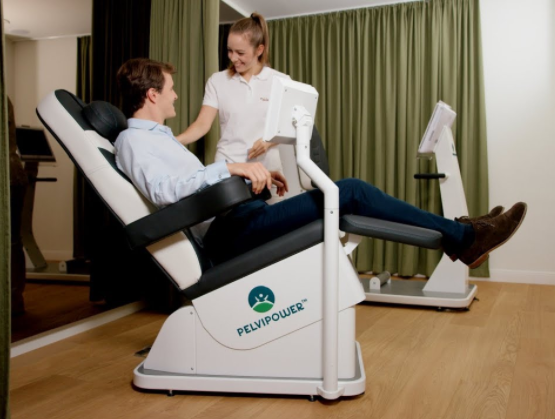Pelvic Floor Health & Urinary Incontinence in Men
Did you know around 1 in every 4 men over 40 years old deals with urine leakage, also known as incontinence?
But just because it's common doesn't mean that you should have to live with it!
So what does it actually mean and what causes it?
Urinary incontinence in men is the unintentional passing of urine. It's a common problem thought to affect millions of people, however, exact figures are not readily available due to the embarrassment felt by those experiencing it.
The main causes of incontinence in men all link back to the prostate; often occurring when the prostate is enlarged, has cancer or has just experienced prostate surgery. However, it can often be the result of other medical issues such as nervous system disorders, stroke, or injury to the spinal cord. Leakage also often happens when the pelvic floor has been weakened for a number of reasons, often linking to the reasons stated above.
Are there 'types' or a scale of male incontinence?
There are several types of urinary incontinence in men, including :
- Stress incontinence - when urine leaks out at times when your bladder is under pressure; for example, when you cough or laugh
- Urge incontinence - when urine leaks as you feel a sudden, intense urge to pee, or soon afterwards (NB It's possible to have a combination of both this and stress incontinence in men, too).
- Overflow incontinence (chronic urinary retention) - when you're unable to fully empty your bladder, which causes frequent leaking
- Total incontinence - when your bladder cannot store any urine at all, which causes you to pass urine constantly or have frequent leaking
- Bed wetting - possibly caused by stress, or a side effect of medication
This all sounds familiar, but where can I go for help and what would it involve?
We understand that incontinence in men can be debilitating; we also know that it may be embarrassing for some.
But you are not alone.
There are treatments, things to help with, and solutions to many cases of male urinary incontinence.
Many Physiotherapists, such as Emma James Physiotherapy, have multiple solutions to your problem of urinary incontinence and would be happy to discuss with you today.
Often a simple solution to male incontinence is a course of treatments on a PelviPower Chair at Emma James; a solution with additional benefits including reduced erectile dysfunction, stimulation of blood flow in the genital area, and aiding before/after a prostatectomy (prostate removal) with incontinence complaints due to a weakened pelvic floor.
Emma writes more about the power of this chair here.
Note : the severity of your incontinence may be an indicator into the severity of the cause, but it is always best to discuss your issues with a medical professional; in case your incontinence is a sign of something unknown to you.

Are there any other day to day things I can be doing to help male incontinence
- Drinking less caffeine
- Losing weight if you're overweight
- Changing the amount of fluid you drink each day
- Treating any constipation - this may mean eating more fruit and vegetables and drinking plenty of fluids
- Doing less strenuous exercise
- Doing pelvic floor exercises - these may help particularly if you have stress incontinence
- Bladder training - this may help in particular for urge incontinence sufferers
We understand that while this is happening to you, it can be debilitating, and some may find their leakage embarrassing.
With this in mind there are products - such as those provided by Cheeky Wipes - to help your incontinence be a plastic-free, eco-friendly and cheaper experience, as buying plastic filled pads or pants become a thing of the past.
The affordable range of discreet, comfortable pads and pants at Team Cheeky mean that while you train your pelvic floor against incontinence you feel as comfortable as possible.
For more on our partnership with Emma James Physio and the other blogs she's written in this series, visit https://www.cheekywipes.com/blog/